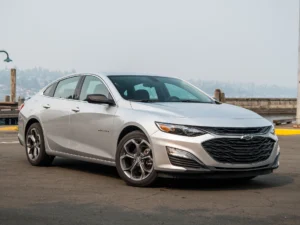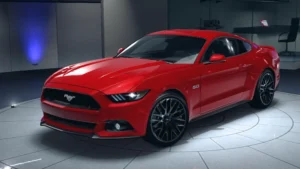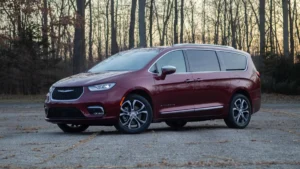Building or restoring a project car is a fulfilling hobby for car enthusiasts. With a budget of $5,000 or less, finding the right project car is challenging but not impossible. Whether you’re looking for a classic to restore or a tuner to modify, there are plenty of options in this price range.
In this guide, we’ll explore some of the best cheap project cars, including model years, current price estimates, and what makes each a great option. From iconic sports cars to hidden gems, there’s a project car for everyone, no matter your mechanical skill level or vision for the build.
Factors to Consider
Selecting the right project car within budget requires careful thought. While it might be tempting to purchase the first car that meets your price range, several key factors should guide your decision to ensure you don’t end up spending significantly more in the long run.
1. Availability of Parts
The availability of replacement and upgrade parts is one of the most critical factors when choosing a project car. Cars like the Honda Civic, Mazda Miata, and Ford Mustang benefit from widespread aftermarket support.
The easier it is to find parts, the quicker (and cheaper) your project can progress. If parts are rare or difficult to find, repairs could take longer and be more expensive. For some older or more obscure models, even basic components can become costly or take weeks to source.
Ensure you research the availability of parts for your chosen car before committing to the purchase.
2. Condition of the Car
While you’re buying a car to work on, the initial condition of the vehicle plays a huge role in the total cost of your project. Cars in better shape may require less initial investment to get them roadworthy, while those that are rusted or have significant engine problems might exceed your $5,000 budget when repairs are factored in.
Pay attention to the car’s body condition, frame, engine, and suspension when inspecting potential purchases. Surface rust may be manageable, but structural rust can be a deal-breaker as it can require extensive work. Similarly, engine and transmission issues can add significantly to your project costs.
3. Purpose of the Build
Different project cars serve different purposes. Are you building a track car, a daily driver, a show car, or an off-roader? The intended use of the car should heavily influence your choice.
A classic muscle car like the Ford Mustang is perfect for drag racing or a weekend cruiser, while a Jeep Cherokee XJ might be ideal for off-road adventures. On the other hand, lightweight sports cars like the Mazda Miata are well-suited for autocross or track days.
Having a clear goal for your project can help narrow your options and avoid overspending on unnecessary modifications.
4. Your Mechanical Skills
The more mechanical experience you have, the easier it will be to take on more ambitious projects. If you’re a beginner, starting with a simple, well-documented car like a Honda Civic or Mazda Miata may be the best choice, as they are relatively easy to work on and have a wealth of tutorials available.
If you have more experience or access to specialized tools, you might consider more complex builds such as the mid-engine Toyota MR2 or a BMW E30. Knowing your limitations and skill level will ensure your project stays manageable and enjoyable.
5. Resale Value
If you ever plan to sell your project car, consider its potential resale value. Some cars appreciate after restoration or modification, while others may not. Classics like the BMW E30 and Ford Mustang tend to hold or increase in value, especially with tasteful modifications.
Be mindful of trends in the automotive world, as certain models might become more desirable over time. A car with a strong enthusiast following is more likely to fetch a good resale price once your project is complete.
Where to Find Affordable Project Cars
Below are some of the most popular and effective ways to hunt for your next project vehicle.
1. Online Marketplaces
Websites like Craigslist, Facebook Marketplace, and eBay Motors are great starting points for finding project cars in your area or even across the country. These platforms allow you to search for specific makes, models, and price ranges, making it easier to find the right car for your budget.
Online listings often give you a good sense of the car’s condition with pictures and detailed descriptions. However, it’s essential to inspect any vehicle in person before buying to ensure there are no hidden issues.
- Craigslist: It has been a go-to source for used cars for years. While you need to be cautious of scams or misleading listings, it’s possible to find good deals on project cars.
- Facebook Marketplace: With its easy-to-use interface and a large user base, Facebook Marketplace is another excellent platform for finding affordable project cars locally.
- eBay Motors: Though often more expensive due to bidding, you can occasionally find a deal on eBay Motors, especially for rarer cars. Shipping can be a downside if you’re purchasing from a distant location.
2. Local Auctions
Local car auctions can be gold mines for finding cheap project cars. Many vehicles sold at auctions come from police seizures, government fleets, or repossessions, which means you can often pick up a car for a fraction of its actual value.
The downside is that you might not have a chance to thoroughly inspect the car before bidding, so there’s always a bit of a gamble involved. Nonetheless, if you’re prepared to take a risk, car auctions can yield fantastic project opportunities.
- Police Auctions: Many municipalities auction off seized or abandoned vehicles, and prices are typically much lower than the market value.
- Government Surplus Auctions: Vehicles retired from government fleets, such as police cars or postal trucks, are often sold at low prices. While not glamorous, these cars can be reliable and affordable project vehicles.
3. Car Enthusiast Forums
Car enthusiast forums can also be a valuable resource for finding project cars. Many members of these forums are passionate about their cars and often sell vehicles to other enthusiasts at reasonable prices.
These communities are great for finding specific makes and models, and sellers on forums tend to provide honest descriptions since they are often well-informed about the cars they are selling. Some popular forums for specific makes include:
- Honda-Tech for Honda enthusiasts
- ClubLexus for Lexus fans
- Zilvia for Nissan 240SX and S-Chassis fans
- NASIOC for Subaru enthusiasts
4. Word of Mouth
Never underestimate the power of word of mouth. Let your friends, family, and coworkers know you’re on the hunt for a project car. You might be surprised by how many people know someone looking to sell an old car sitting in their garage or driveway.
These word-of-mouth deals often lead to some of the best bargains since there’s no advertising cost or dealer markup involved.
Common Modifications for Budget Project Cars
Once you’ve selected your project car, it’s time to plan out your modifications. One of the best parts of working on a project car is the ability to customize it to your exact vision. Below are some of the most common modifications that people make to budget project cars.
1. Engine Swaps and Performance Upgrades
One of the most exciting aspects of a project car is improving its performance. Many budget project cars, especially older models, can benefit from engine swaps or other performance upgrades.
For example, a popular modification for Honda Civic owners is swapping the stock engine with a more powerful B-series or K-series engine. Similarly, BMW E30 enthusiasts often swap in a larger inline-six engine for more horsepower.
Other performance upgrades might include turbocharging or supercharging the engine, installing a cold air intake, or upgrading the exhaust system. Performance modifications can transform a budget project car into a serious performer, but they also require mechanical knowledge and careful planning to avoid damaging the car.
2. Suspension and Handling
Upgrading your car’s suspension is one of the most noticeable improvements you can make, especially for cars intended for track use or spirited driving. Installing coilovers, sway bars, or stiffer shocks can drastically improve the handling and cornering ability of your car.
For off-road builds, such as the Jeep Cherokee XJ, lifting the suspension and installing larger tires can enhance the car’s off-road capability.
Even for street builds, improving the suspension can make your project car more fun to drive and safer by providing better control over the vehicle. Aftermarket suspension kits are widely available for popular project cars and can be tailored to your specific driving needs.
3. Exterior and Interior Modifications
Many project cars benefit from exterior and interior modifications that enhance their aesthetic appeal. Exterior modifications can range from subtle changes like a new set of wheels or a custom paint job to more dramatic upgrades like body kits or widebody fenders.
For cars like the Nissan 240SX or Toyota MR2, aero kits and spoilers are popular additions that give the car a more aggressive look.
Interior modifications can include new racing seats, a custom steering wheel, or a roll cage for added safety in track-focused builds. Restoring the interior of a classic car, such as the BMW E30, can also significantly increase the car’s value and your enjoyment of the project.
4. Brakes and Safety
Upgrading the brakes is a critical modification for project cars, especially those being tuned for performance. High-performance brake pads, rotors, and calipers ensure that your car can stop as quickly as it accelerates.
Additionally, ensuring that the car has up-to-date safety equipment like seat belts or airbags (if applicable) is essential, particularly for older cars that might lack modern safety features.
1. Mazda MX-5 Miata (1990–1997)
- Model Year: 1990–1997
- Price: $3,000–$5,000
The Mazda MX-5 Miata is a beloved roadster known for its lightweight design and excellent handling. This car makes a perfect project vehicle due to its simplicity, availability of parts, and vast aftermarket support.
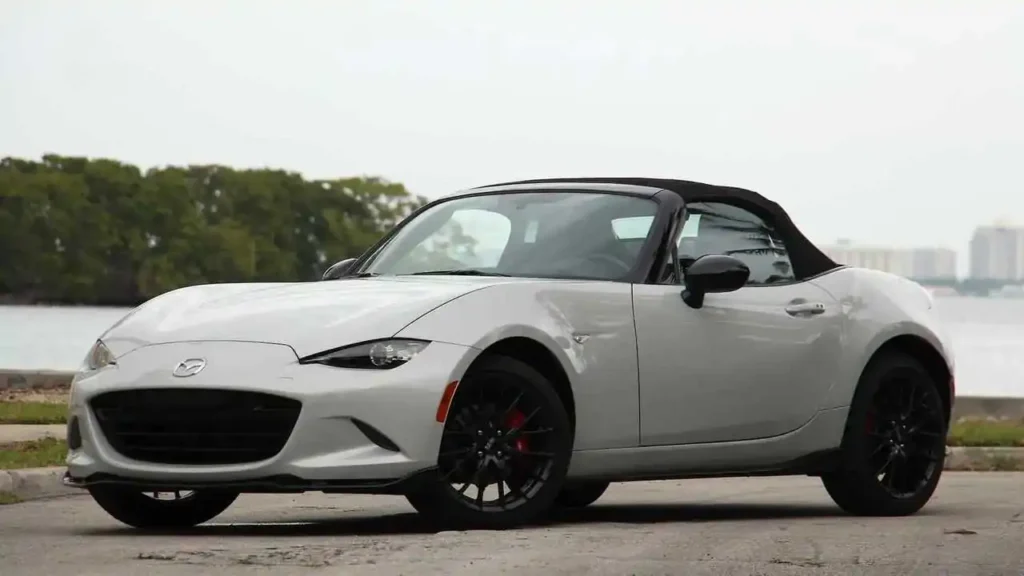
Miatas from the early 1990s are still affordable and offer a fun, driver-focused experience. You can find plenty of used models, though you might need to invest in a new suspension, bodywork, or engine upgrades depending on the condition.
The NA (first-generation) Miata is a favorite because of its pop-up headlights and classic design. It’s a great choice for those wanting a sports car to upgrade or restore. Its reliability and ease of modification make it popular among car enthusiasts, ensuring that parts are relatively easy to find and affordable.
2. BMW 3 Series E30 (1984–1991)
- Model Year: 1984–1991
- Price: $4,000–$5,000
The BMW E30 3 Series is a timeless model that’s gained cult status over the years. It’s not just a classic car; it’s also a great platform for a project build. While E30 prices have risen in recent years due to their popularity, you can still find examples under budget if you’re willing to invest time in restoring or repairing them.
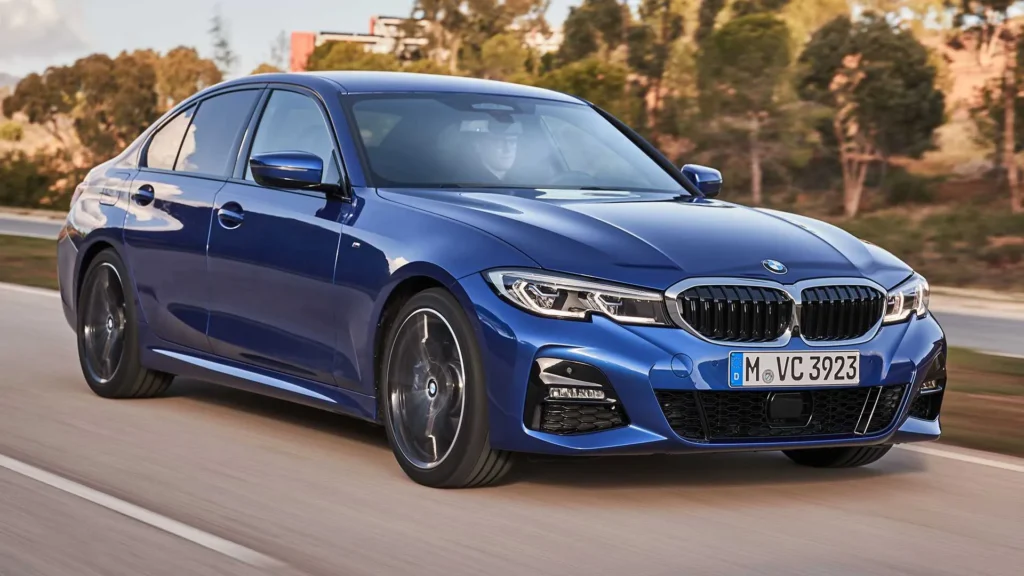
Known for its sharp handling, rear-wheel drive, and robust engine, the E30 can be tuned for performance or kept in its stock form as a vintage driver. Parts are still widely available, and many enthusiasts have built track-ready or performance versions of the E30, making it a versatile choice for anyone looking for a project car.
3. Honda Civic (1992–2000)
- Model Year: 1992–2000
- Price: $2,000–$4,500
The Honda Civic from the 1990s is one of the most popular choices for a project car, especially among those who want a tuner-friendly vehicle. The Civic is known for its reliability, lightweight chassis, and excellent aftermarket support. Models from 1992–2000 are still relatively cheap and provide a solid foundation for performance upgrades, body modifications, and engine swaps.
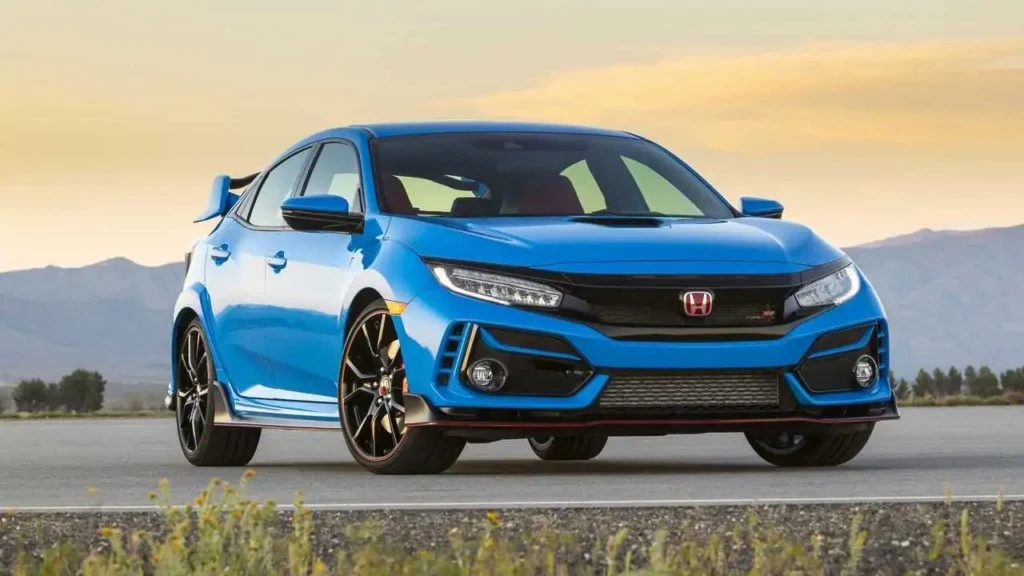
Civics are easy to work on, and their engines are highly receptive to tuning, making them a favorite in the car community. Whether you’re planning a track car, street racer, or custom build, the Honda Civic is a fantastic option.
4. Ford Mustang (1994–1998)
- Model Year: 1994–1998
- Price: $3,500–$5,000
For American muscle car fans, the mid-1990s Ford Mustang is an affordable option for a project car. These Mustangs, especially the GT models, come with V8 engines that are perfect for tuning. While newer Mustangs can be expensive, models from 1994 to 1998 can still be found within the $5,000 range.
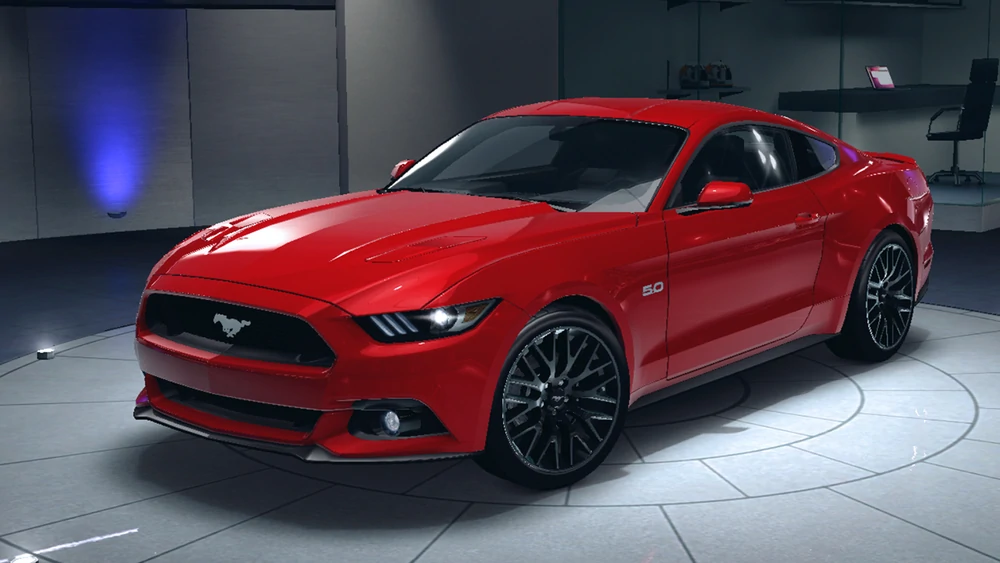
Whether you’re interested in restoring a classic muscle car or building a drag racer, the Mustang offers plenty of power and aftermarket support. It’s also a relatively easy car to work on, and there are countless resources and parts available for modifications. The sleek design of the SN95 model and its powerful engine make it an excellent starting point for muscle car enthusiasts.
5. Nissan 240SX (1989–1998)
- Model Year: 1989–1998
- Price: $3,000–$5,000
The Nissan 240SX is an iconic Japanese sports car that’s popular in the drift community. Known for its rear-wheel-drive layout and balanced handling, the 240SX is a great project car for those interested in building a performance or drift vehicle. The S13 (1989–1994) and S14 (1995–1998) models are especially sought after for their potential.

Prices for these cars have been increasing, but it’s still possible to find one if you’re patient. Due to their popularity, the 240SX has a large following, and there are plenty of aftermarket parts available. Whether you’re building a track car or a street machine, the 240SX offers a solid foundation.
6. Jeep Cherokee XJ (1984–2001)
- Model Year: 1984–2001
- Price: $2,500–$4,500
If off-roading is more your style, the Jeep Cherokee XJ is an excellent project vehicle under $5,000. Known for its rugged durability and capable 4×4 system, the Cherokee XJ has become a cult favorite among off-road enthusiasts. Its boxy design and reliable 4.0L inline-six engine make it an ideal platform for a budget build.

Parts for the Cherokee XJ are abundant and relatively inexpensive, making it a great project car for someone looking to build an off-road rig. Whether you want to modify the suspension for serious trail performance or simply restore an old XJ for daily use, the Cherokee is an affordable and versatile option.
7. Toyota MR2 (1985–1995)
- Model Year: 1985–1995
- Price: $3,000–$5,000
The Toyota MR2 is a unique project car due to its mid-engine, rear-wheel-drive layout. This compact sports car offers exceptional handling and a fun driving experience, making it a popular choice for enthusiasts. The first and second-generation MR2s can still be found for under $5,000, though they may require some mechanical or cosmetic restoration.

The MR2 is known for being a bit more complex to work on due to its engine placement, but it’s a rewarding project for those up to the challenge. Whether you want to restore it to factory condition or modify it for performance, the MR2 is a standout choice in the project car market.
8. Volkswagen Golf GTI (1994–2001)
- Model Year: 1994–2001
- Price: $3,000–$4,500
The Volkswagen Golf GTI is an iconic hot hatch that offers plenty of fun for a relatively low price. Models from the mid-90s to early 2000s are still within the $5,000 range and offer a solid foundation for modifications. The GTI’s turbocharged engines, lightweight design, and agile handling make it a great project car, especially for those interested in building a performance-oriented hatchback.
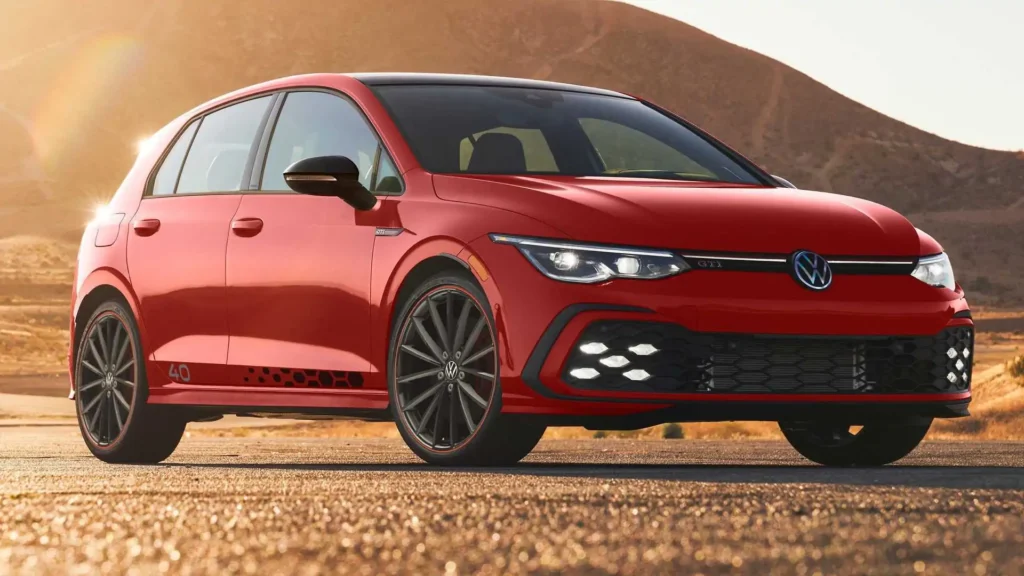
With a strong community of enthusiasts and plenty of aftermarket parts available, the GTI is a versatile project car that can be customized to your liking. Whether you’re aiming for a performance build or a stylish daily driver, the Golf GTI offers excellent value for your money.
9. Subaru Impreza (1993–2001)
- Model Year: 1993–2001
- Price: $2,500–$5,000
The Subaru Impreza is a fantastic project car for those looking to build a rally-inspired vehicle. Known for its all-wheel-drive system and durable engine, the Impreza is a popular platform for modifications. Early models from the 1990s are still affordable, and there’s a large community of Subaru enthusiasts to help guide your build.
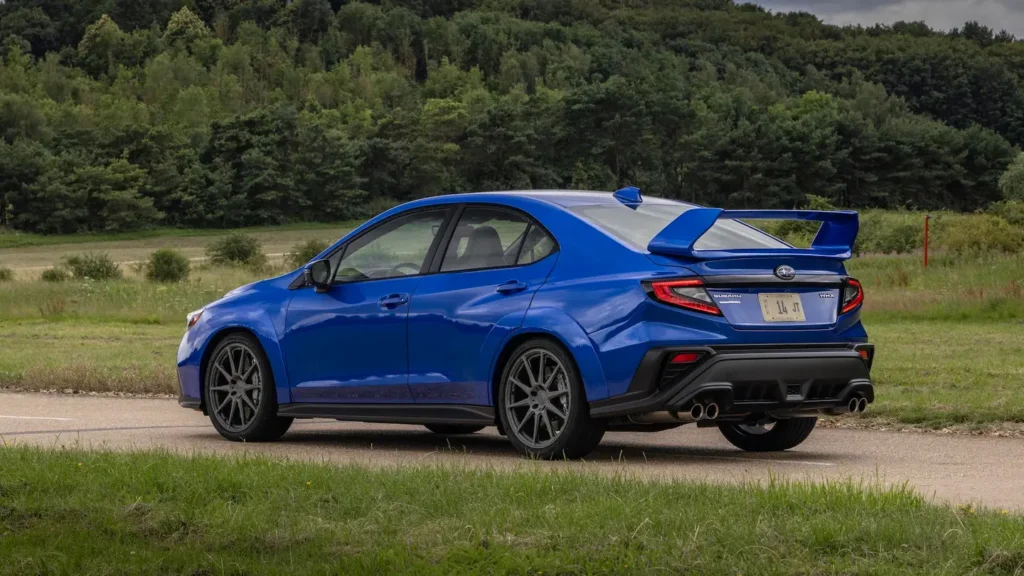
The Impreza is a versatile car that can be used for everything from daily driving to track use. With a wide variety of aftermarket parts available, including suspension upgrades and performance modifications, it’s a great option for anyone looking to build a budget-friendly project car.
10. Chevrolet Camaro (1993–2002)
- Model Year: 1993–2002
- Price: $3,500–$5,000
The Chevrolet Camaro from the 1990s and early 2000s is another great option for muscle car enthusiasts. These fourth-generation Camaros are known for their V8 engines and powerful performance, making them a fantastic platform for a project build. With models available under $5,000, the Camaro offers a lot of bang for your buck in terms of performance potential.
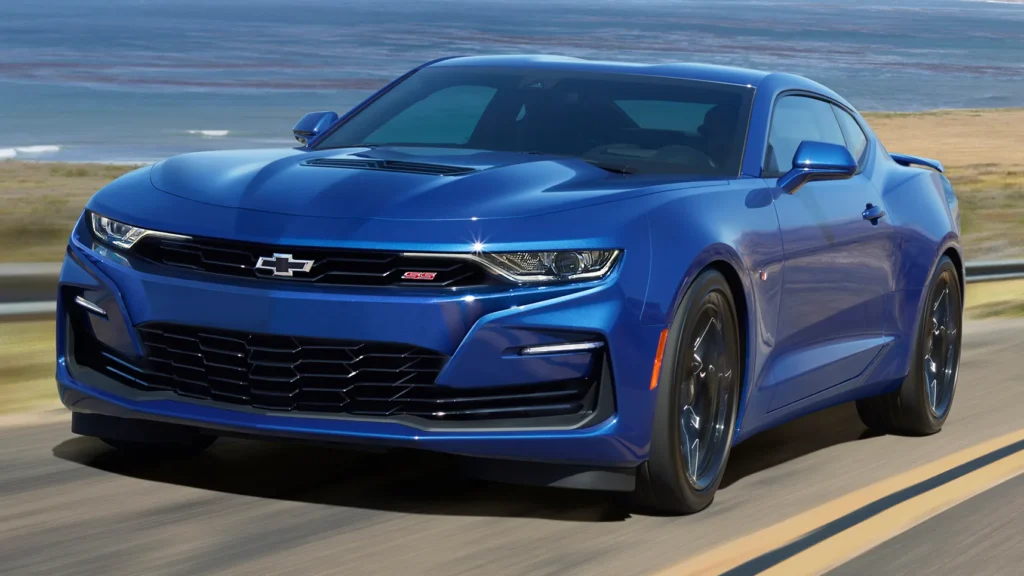
The Camaro’s strong aftermarket support and the availability of parts make it a solid choice for those looking to build a muscle car on a budget. Whether you’re aiming to restore it to its former glory or create a high-performance beast, the Camaro is a classic American muscle car that’s perfect for a project.
Conclusion
Finding a project car under $5,000 might seem daunting, but with the right approach, there are plenty of options out there. Whether you’re into JDM tuners, American muscle, or European classics, this price range offers something for everyone.
While each of the cars listed here may require varying degrees of work, they all provide a great starting point for a rewarding build. Be sure to consider factors such as the availability of parts, your mechanical skills, and the car’s potential for customization as you search for your next project.



